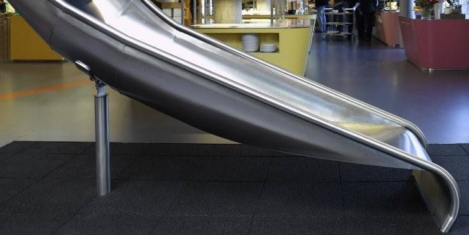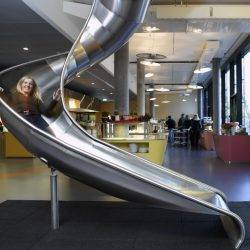August 14, 2017
Mayor announces plans to boost digital connectivity across London
 The Mayor of London, Sadiq Khan, has announced a package of measures which he claims will boost digital connectivity across the capital and tackle London’s areas of poor connectivity – known as ‘not-spots’ – including the appointment of a troubleshooting ‘Not Spot Team’. Meanwhile, Transport for London is working to bring mobile connectivity to London Underground tunnels – one of the most high-profile not spots in the country. In spite of Brexit, London is still widely regarded as Europe’s leading technology hub, with a growing sector of over 40,000 digital technology businesses employing almost 200,000 people, as well as major bases of many leading global tech companies. But while the capital leads the way in tech growth, there are parts of the city where slow and unreliable broadband is a source of concern and frustration for businesses and residents alike, such as in Rotherhithe and parts of Westminster and the City of London.
The Mayor of London, Sadiq Khan, has announced a package of measures which he claims will boost digital connectivity across the capital and tackle London’s areas of poor connectivity – known as ‘not-spots’ – including the appointment of a troubleshooting ‘Not Spot Team’. Meanwhile, Transport for London is working to bring mobile connectivity to London Underground tunnels – one of the most high-profile not spots in the country. In spite of Brexit, London is still widely regarded as Europe’s leading technology hub, with a growing sector of over 40,000 digital technology businesses employing almost 200,000 people, as well as major bases of many leading global tech companies. But while the capital leads the way in tech growth, there are parts of the city where slow and unreliable broadband is a source of concern and frustration for businesses and residents alike, such as in Rotherhithe and parts of Westminster and the City of London.















 An increase in the number of UK-born employees leaving the UK’s workforce, either through retirement or emigration is coinciding with a shrinking pool of younger workers, which a fall in immigration can no longer fill, a new report warns. An analysis of the UK’s workforce showed that the UK’s workforce grew in 2016-2017 only because of an increase in EU and non-EU workers.
An increase in the number of UK-born employees leaving the UK’s workforce, either through retirement or emigration is coinciding with a shrinking pool of younger workers, which a fall in immigration can no longer fill, a new report warns. An analysis of the UK’s workforce showed that the UK’s workforce grew in 2016-2017 only because of an increase in EU and non-EU workers. 






 Some individuals within local government are holding back tech to preserve the status quo – a new survey suggests. According to the research, these people feel threatened by new technology and believe it will be disruptive to their ways of working. While the survey by 8×8 of staff working in local government suggested a significant appetite for new technology, more than a fifth (22 percent) say certain individuals are holding back tech adoption to preserve the status quo. This view is more prevalent amongst those in IT procurement, where more than a third (35 percent) believe colleagues are standing in the way of technology because it will disrupt what they already have in place. Only 51 percent of respondents believe senior management understand the importance of new technology and just 21 percent think they invest enough money to stay up to date with the latest developments. This contrasts with the private sector, where over half (56 percent) believe there is sufficient investment in new technology.
Some individuals within local government are holding back tech to preserve the status quo – a new survey suggests. According to the research, these people feel threatened by new technology and believe it will be disruptive to their ways of working. While the survey by 8×8 of staff working in local government suggested a significant appetite for new technology, more than a fifth (22 percent) say certain individuals are holding back tech adoption to preserve the status quo. This view is more prevalent amongst those in IT procurement, where more than a third (35 percent) believe colleagues are standing in the way of technology because it will disrupt what they already have in place. Only 51 percent of respondents believe senior management understand the importance of new technology and just 21 percent think they invest enough money to stay up to date with the latest developments. This contrasts with the private sector, where over half (56 percent) believe there is sufficient investment in new technology.









August 11, 2017
Reducing the risk of personal gambling becoming a corporate fraud issue
by Andrew Durant • Comment, Workplace
(more…)